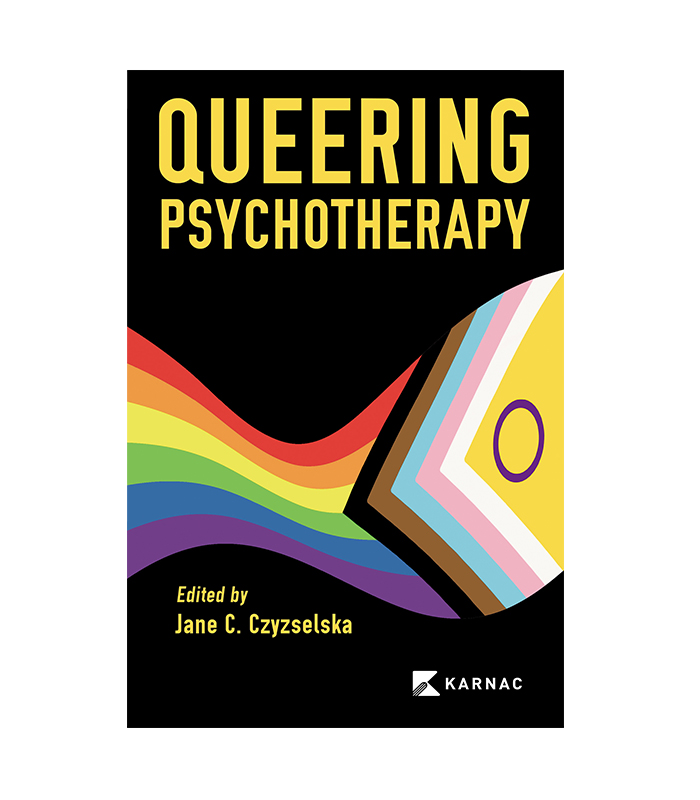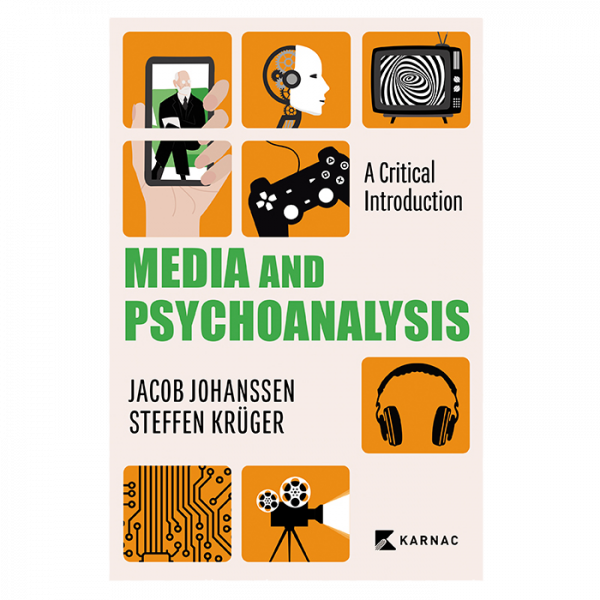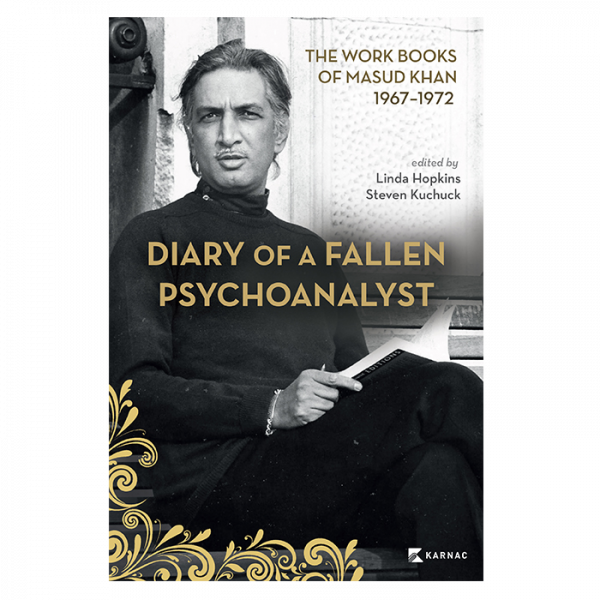LGBTIQ+ people are more likely than cisgender and heterosexual individuals to suffer with mental health issues, yet often have poorer therapeutic outcomes. Mainstream Eurocentric psychotherapeutic theories, developed largely by heterosexual, cisgender, and white theorists, tend to see LGBTIQ+ as a singular group through this ‘othered’ lens. Despite the undeniable value offered by many of these theories, they and those who use them – queer therapists included – can often pathologise, marginalise, misunderstand, and diminish the flourishing and diversity of queer experience.
In this volume, editor and psychotherapist Jane C. Czyzselska speaks with practitioners and clients from diverse modalities and lived experiences, exploring and rethinking some of the unique challenges encountered in a world that continues to marginalise queer lives.
The contributors to Queering Psychotherapy present key insights and practical advice in a dynamic conversational format, providing intimate access to therapists’ personal and professional knowledge and reflections. This book is an invaluable training in itself.





 Jane C. Czyzselska (they/she) is a relational integrative psychotherapist and counsellor in private practice. They are also a journalist, a writer, and a trustee of The Relational School.
Jane C. Czyzselska (they/she) is a relational integrative psychotherapist and counsellor in private practice. They are also a journalist, a writer, and a trustee of The Relational School.
Dr Aaron Balick, Psychotherapist and author –
‘The discipline of psychotherapy is unavoidably implicated in the structure of the society in which it operates. The only way to ensure it doesn’t replicate embedded social inequities and harms is for it regularly subject itself to intense critical examination from a wide diversity of perspectives. Queering Psychotherapy is a shining example of this kind of inquiry and should be a compulsory read for anyone in the field, however they choose to identify.’
Juno Roche, writer –
‘The space of therapy can feel claustrophobic. If you’re queer or trans and working with a heteronormative therapist, the room itself can feel airless especially when you are trying to establish a workable relationship and understanding about your identity. An airless room fraught with misunderstandings. This book is a reservoir of information, knowledge and professional understandings which seek to widen out that space into a comfortable queer landscape. Invaluable.’
Roxy Bourdillon, editor-in-chief of DIVA magazine –
‘Queering Psychotherapy is a dynamic collection featuring important, intersectional perspectives. It tackles big topics, such as trans desire, lesbian erasure and navigating shame, with nuance and care. Brimming with powerful insights, this book is a vital resource for professionals and fascinating reading material for us all.’
Shoshi Asheri, Psychotherapist, educator and creative collaborator at Aashna UK –
‘A stirring and necessary contribution to the field! In this liminal time, when a new generation of clients and students are calling psychotherapists and training institutions to accountability, Queering Psychotherapy can offer a compelling compass for reorienting and reimagining our field. The collaborative format of the book embodies the message vividly, by calling us all in, to critically and heartfully join the creative project of querying and queering the underpinning of our theories and practices.’
Dr Dwight Turner Psychotherapist, Supervisor and Workshop Facilitator –
‘This excellent book takes an intersectional approach in the understanding of psychotherapy through a queer lens and is essential reading, therefore for those who are from the LGBTQ+ community or are working within said communities such as myself. That this book has been brave enough to include such a wide range of voices and perspectives, angles, cultures, and races is a testament to just how psychotherapy can come together when it steps outside of the heteronormative, able-bodied, white, middle class constraints within which it has been entangled almost since its inception. This book is essential reading and needs to be studied on courses around the country.’
Matthew Todd, author of Straight Jacket –
‘Passionate, thoughtful and opens a much-needed discussion with the mainstream therapeutic community who often do not understand the needs and lives of LGBTQI+ clients.’
Harriet Mossop , University of Essex, UK, Feminism & Psychology, 1–5, 2023 –
‘The open dialogues resulting from Czyzselska’s invitation weave through a broad range of intersecting and intersectional contemporary psychotherapeutic topics from the perspectives of clinicians […] The collection also gives important space to conversations with clinicians who identify as and work with trans, nonbinary, gender expansive, and intersex people.’
Jeanine Connor, psychodynamic psychotherapist, The Bookshelf –
‘In 16 rich chapters, the reader is stimulated, challenged and cajoled to consider the lived realities of queer experiences […] This book tasks us all to think about our positions and privileges and to question the status quo.’
Silva Neves, UKCP-registered and COSRT-accredited psychotherapist, Pink Therapy clinical associate, and author, New Psychotherapist, Winter 2022/23 –
‘Queering Psychotherapy invites us to think deeply about intricate subjects in nuanced ways. […] This book gifts us by showcasing how healing the work of a certified sexological bodyworker can be, how it is easy to unduly pathologise sex workers, intersex people’s lives from their own voice, how to live and work within the queer community, and a phenomenal new take on supervision reframed as ‘supra-vision’. Many of those topics are not written about enough, and certainly not in the depth that this book offers. It is a highly recommended read for psychotherapists at all levels.’
Jeanine Connor, psychodynamic psychotherapist, BACP, Therapy Today, 2023 –
‘An outstanding book […] Czyzselska presents the lesser-heard voices of black feminists, trans and gender-expansive clients, queer sex workers, intersex individuals, lesbian patients and queer and trans children. […] This book tasks us all to think about our positions and privileges and to question the status quo.’
Briana Leigh McGeough, Affilia: Feminist Inquiry in Social Work, May 2024 –
‘In Queering psychotherapy, Jane C. Czyzselska presents a powerful series of conversations that challenge the normative structures and assumptions that govern modern psychotherapy. […] The book is written in a captivating style, composed of conversations between the editor and scholars and psychotherapists who hold a range of racial, sexual, and gender identities. The rich integration of critical race and feminist/womanist theories alongside psychotherapy practice theories makes the book a compelling read for those who are interested in how critical theories can be used to inform clinical practice. […] Ultimately Queering psychotherapy is a compelling text that problematizes some of the core assumptions underlying psychotherapy practice with members of the LGBTIQ+ community. The text is extraordinarily thoughtful in its multi-level and intersectional approaches, intensively engaging with critical race, feminist/womanist, and queer theories. The book is also unique in its extensive representation of the perspectives of individuals holding minoritized racial and gender identities. I eagerly await an expansion of the core concepts of this text, which will more directly and explicitly guide psychotherapists’ applications of these concepts with their LGBTIQ+ clients.’
Kieran Jeffs, European Journal of Psychotherapy & Counselling, 25:1-2, 2023. –
‘I would heartily recommend this book to any therapist, and especially ones who are working with gender non-conforming clients. It ploughs thoughtfully and provokingly into territory which is more often the domain of soundbites than sustained analysis, and in doing so raises many pertinent questions for therapists. Even as someone who has decent experience with trans clients and who has attended several training events on the topic, I found myself thinking about things in a very different way than before, and that is very much to the book’s credit.’